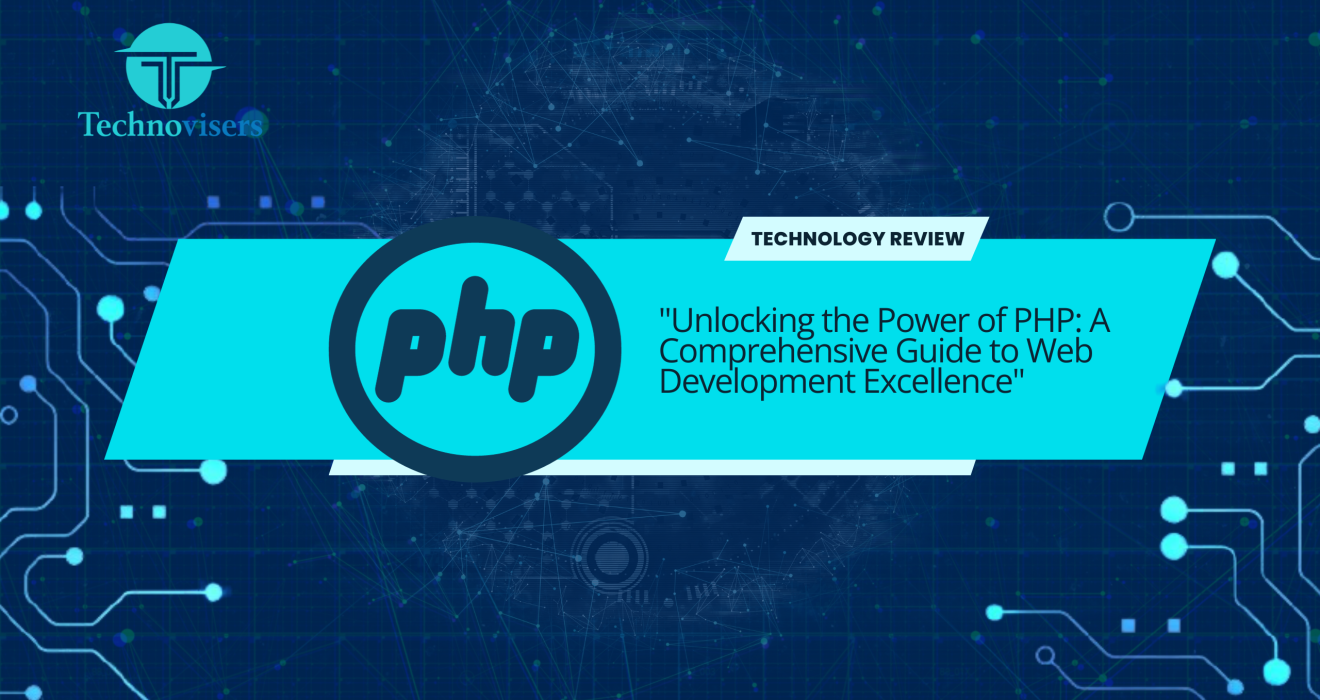“PHP Unveiled: Tracing the Evolution and Legacy of a Web Development Pioneer”
Introduction:
PHP, an acronym for Hypertext Preprocessor, has been a cornerstone of web development for over two decades. As we embark on a journey through the annals of time, let’s explore the rich history, evolution, and enduring legacy of PHP.
Genesis of PHP (1994-1997)
In the mid-1990s, Rasmus Lerdorf, a Danish-Canadian programmer, created the precursor to PHP as a tool for tracking visits to his online resume. Initially, PHP stood for “Personal Home Page,” reflecting its humble beginnings. By 1997, PHP/FI (Forms Interpreter) had evolved into a more robust scripting language.
PHP 3 and Server-Side Scripting (1998-2000)
PHP 3, released in 1998, marked a significant milestone. With a redesigned core engine, support for databases like MySQL, and the ability to create dynamic web pages, PHP started gaining traction as a server-side scripting language. Its open-source nature fostered a growing community of developers.
PHP 4 and the Era of Maturity (2000-2004)
PHP 4, released in 2000, brought features like the Zend Engine, improved performance, and enhanced support for object-oriented programming (OOP). This era witnessed PHP becoming a mature server-side scripting language, widely adopted for web development.
PHP 5 and the OOP Revolution (2004-2014)
The release of PHP 5 in 2004 marked a paradigm shift with robust support for Object-Oriented Programming (OOP). The introduction of features like exception handling and the mysqli extension for MySQL further solidified PHP’s position as a powerful and flexible language.
PHP 6 (The Unfinished Symphony)
While PHP 6 was initially envisioned to bring native Unicode support, the project faced challenges and was eventually abandoned. However, many of its intended features, such as improved string handling functions, found their way into subsequent PHP versions.
PHP 7 and Performance Boost (2015-Present)
PHP 7, released in 2015, was a game-changer. With dramatic improvements in performance, reduced memory consumption, and the introduction of scalar type declarations, PHP 7 ushered in a new era. Subsequent releases, including PHP 7.4 and PHP 8, continued to refine and enhance the language.
PHP’s Enduring Legacy
PHP’s legacy extends beyond its syntax. Its open-source nature, vibrant community, and extensive documentation have contributed to its longevity. PHP powers a significant portion of the web, from small websites to large-scale applications, showcasing its adaptability and scalability.
The PHP Community
At the heart of PHP’s success is its robust community. Online forums, conferences, and collaborative efforts have nurtured an environment of knowledge-sharing and support. The PHP community remains a driving force behind the language’s ongoing evolution.
Conclusion:
As we conclude this historical journey through the evolution of PHP, it’s evident that PHP’s resilience and adaptability have been key to its enduring success. From its humble beginnings to powering a substantial portion of the web, PHP continues to evolve, embracing modern development practices. As we look to the future, PHP’s legacy remains firmly woven into the fabric of web development, influencing generations of developers to come.
“Unleashing the Power of PHP: A Comprehensive Guide to Web Development”
Understanding PHP
PHP, which stands for Hypertext Preprocessor, is an open-source server-side scripting language. It is renowned for its simplicity, flexibility, and ability to seamlessly integrate with HTML, making it a preferred choice for web developers worldwide.
The PHP Advantage
- Versatility: PHP is not limited to a particular platform and can run on various operating systems, including Windows, Linux, and macOS.
- Database Connectivity: Its robust database support, especially with MySQL, makes PHP an ideal choice for building dynamic, database-driven websites.
Getting Started with PHP
Whether you’re a beginner or an experienced developer, diving into PHP is a rewarding journey. This chapter covers the basics, including setting up your development environment, writing your first PHP script, and understanding key syntax.
PHP and HTML Integration
Learn how PHP seamlessly integrates with HTML to create dynamic web pages. Explore the use of PHP within HTML files, enabling the embedding of dynamic content and the execution of PHP code directly within your web pages.
Functions and Control Structures
Delve into the power of functions and control structures in PHP. From conditional statements to loops and user-defined functions, this chapter explores the building blocks that enable efficient and modular code development.
Working with Forms and User Input
Discover how PHP handles user input from web forms. Learn about form validation, data sanitization, and processing user-submitted data to create interactive and user-friendly web applications.
Object-Oriented Programming in PHP
Take your PHP skills to the next level by exploring object-oriented programming (OOP) concepts. Learn how to create classes, objects, and leverage inheritance and polymorphism for scalable and maintainable code.
PHP and Security Best Practices
Security is paramount in web development. This chapter covers essential security practices in PHP, including data validation, SQL injection prevention, and protecting against common vulnerabilities.
Integrating PHP with Databases
Explore the seamless integration of PHP with databases. Learn how to perform database operations using PHP and MySQL, from basic queries to advanced transactions.
The Future of PHP
Conclude the journey by exploring the future developments and trends in PHP. Discover the vibrant PHP community, ongoing projects, and how PHP continues to evolve to meet the demands of modern web development.
Conclusion:
As we wrap up this comprehensive guide to PHP, we hope you’ve gained insights into the incredible world of PHP web development. Whether you’re a novice or an experienced developer, PHP’s versatility and robust features make it an invaluable tool for creating dynamic and interactive web applications. Happy coding!

